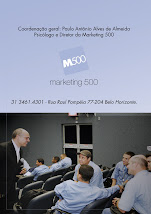To many philosophers this seemed to indicate that "free will" might not exist in humans at all, but Dr. Libet disagreed. When his experiments showed that if his subjects were told not to move a finger, or to stop moving it, their conscious will would maintain complete control - "could veto it and block performance of the act," as he described it.
"These discoveries have profound implications for the nature of free will, for individual responsibility and guilt," he wrote.
Para muitos filósofos, esta parecia indicar que o "livre arbítrio" não pode existir no ser humano em tudo, mas o Dr. Libet discordou.Quando seus experimentos mostraram que, se os seus súditos foram orientados a não mover um dedo, ou parar de movê-lo, a sua vontade consciente seria manter o controle completo - "poderia vetá-lo e bloquear a execução do acto", como ele descreveu. "Essas descobertas têm implicações profundas para a natureza do livre-arbítrio, para a responsabilidade individual e da culpa", escreveu ele.
Paulo Antônio Alves de Almeida
31 34614301/31 86170253
11 3020 9073/ 11 8059 7011
pauloalmeidam500.tumblr.com
pauloalmeida@usp.br
pauloalmeida@marketing500.com.br
twitter.com/pauloalmeidapsi
www.marketing500.com.br
31 34614301/31 86170253
11 3020 9073/ 11 8059 7011
pauloalmeidam500.tumblr.com
pauloalmeida@usp.br
pauloalmeida@marketing500.com.br
twitter.com/pauloalmeidapsi
www.marketing500.com.br



No comments:
Post a Comment